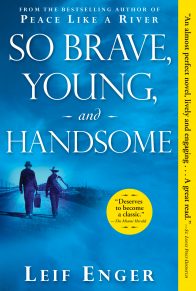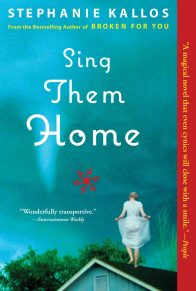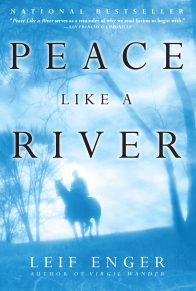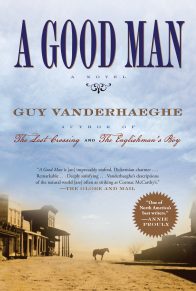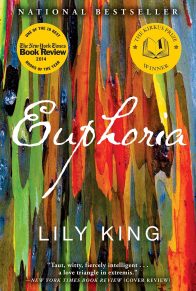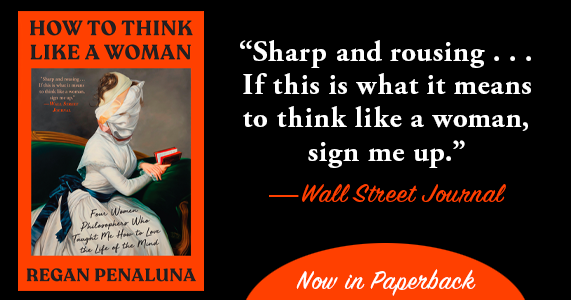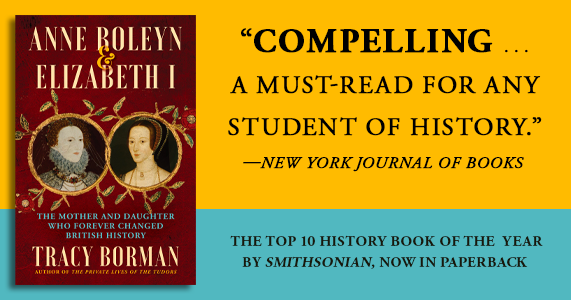1. Wrinkle has a hypnotic way of enfolding the reader into backstories as characters recall their histories. How does her use of multiple narrators and overlapping chronologies fit the concerns and themes of her novel? How do the present and the past relate to one another, both in each character’s story and in the novel itself?
2. Nigerian poet and novelist Ben Okri’s The Famished Road provides the epigraph for Wash, which closes with the startling statement about living as a spirit: “We feared the heartlessness of human beings, all of whom are born blind, few of whom learn to see.” Consider what Okri might mean about learning to see, and how the characters in Wash both resist and embrace learning to see. What moments of both moral and interpersonal blindness stand out? What surprising insights, connections, and generosities sometimes occur? On the other hand, discuss how looking and seeing can be dangerous in a slave society.
3. Storytelling becomes an active art and mystery, within both the enslaved and slaveholding communities. Think about the characters’ use of storytelling to fill young minds with the fundamental tools to find their way in life. Consider the differences between what Wash is taught by his mother and what Richardson is taught by his father. What kinds of legacies are passed down and how are they accepted or rejected?
4. How does Wash’s childhood on the island provide a foundation for his sense of self and help prepare him for trials he will face later in life? What do Mena and Rufus teach Wash about how to use his mind’s eye? Discuss how the mind’s eye relates to the development of Wash’s inner place and helps him survive.
5. What do you glean from the novel about the function of altars, talismans, and rituals in the lives of the enslaved African characters? Consider what Mena means when she tells Wash, “Take your journeys in the spirit world first” (67). Why does Thompson call her teachings “mojo?”
6. How does the novel address the role of initiation in traditional African life, for both boys and girls? Mena knows that “death must draw close . . . but how close . . . and how do you meet it so it will pass on by?” (108). What is Rufus’s relationship to this ritual, both before and after his enslavement? How do Wash’s teenage trials serve as a kind of initiation? Consider whether any of the slaveholding characters face similar initiatory trials.
7. The natural world plays an important role in the lives of all the novel’s main characters in differing ways. Why might some turn to it for solace and healing while others tend to see it as a challenge to dominate and subdue? How might the power dynamics of slavery drive these different ways of relating to the natural world?
8. What role does secrecy play in the book? More specifically, how is it attached to the ideas of power and freedom? Think about secrets kept and secrets told. Mena and Wash hide their altars and talismans, Wash hides Mena’s grave just as Pallas and Richardson work together to hide his, and Richardson and Wash both hide the logbook. What are the historical ramifications of all these secrets? Why does Pallas ultimately decide to tell Wash’s children about him?
9. Wrinkle chose to tell this story using both first- and third-person narration. Why might it be important for a novel about American slavery be told from differing and often contradictory points of view? Consider how each character views the role and function of storytelling differently.
10. How are conflicting views on slavery presented in the novel? Were you surprised that slavery was a controversial issue even in Revolutionary times, or that slaveholders and abolitionists could be friends? Consider what Richardson means when he tells the combative Isobel Bryce about the dilemma faced by the Founding Fathers: “Slavery was something to be endured for the sake of our brand new and extremely fragile Union” (304). How does William’s abolitionism affect his slaveholding family?
11. Are similarly conflicting views on spirituality and religion portrayed in the novel? Compare Mary’s use of the Bible as a justification for slavery with Emmaline’s use of the Bible as a talisman, or Virgil’s and Albert’s use of the twisted stick as a form of conjure. What does Richardson mean when he says, “I was so determined to believe what I’d been taught, that I had dominion” (393)? Think of all the reasons these characters need and practice religion of any kind. What expressions of spirituality seem specifically African in origin?
12. Richardson stabs Nero to avoid being strangled. How does this violent incident reverberate through both the slaveholding and enslaved communities? Why is Richardson so conflicted, both about this event and his struggle to write it down? Discuss how Wash makes sense of the incident.
13. When Wash gets hit in the head with a hammer, how does Mena help him? What meaning does he choose to make from the incident, and does he come to this understanding at the time, or later?
14. How is the encounter between Wash and the chestnut stud (212) a turning point for Wash? What is his revelation about slack and breaking point? How does the insight help him understand himself and re-envision the arc of his life?
15. Sexual exploitation is inherent to the institution of slavery. Why does Richardson decide to use Wash as his “traveling negro”? How does Wash see the advantages and disadvantages of this work as compared to the other options available to him? Consider how this work both isolates and endangers him.
16. What do you make of the incident in which Wash knocks out CeCe? How does he deal with the tendency toward violence that is brought out in him both by his past experiences and by his ongoing challenges? How do CeCe’s mother and Pallas view the incident? Discuss whether Richardson, Thompson, and Eli face similar dilemmas in their ongoing struggles to control the enslaved people they own.
17. How might the legacy of violence required and engendered by slavery continue to affect us now? Consider what other patterns laid down during slavery might still be shaping our contemporary society. Do you see any parallels between Wash’s struggles and the challenges faced by young black men today?
18. Wash and Richardson, while often utterly opposed, share certain qualities and circumstances. Each gains and abuses power, and both are isolated and disempowered in differing ways. How are Wash’s and Richardson’s respective struggles for self-mastery parallel and how are they divergent? How does each man change throughout the novel?
19. Thompson is an important bridge figure. Think about what he teaches Richardson, what the Ibos teach him, what he learns from the loss of his third son, and what he manages to give Wash. How are these lessons linked? What kind of suffering do Richardson and Thompson undergo? Why is Richardson able to tell his story to Wash but not to his own son, Lucius?
20. Consider the relationship between empathy, compassion, and perspective. What does Wash mean when he says, “Same current pulls on white folks too. Sometimes I think maybe it’s worse for them. So much more pulling on em and so much less to hold on to. What little they got must feel like reeds” (48). What is this current? By what calculus might whites have “more pulling on em” and “less to hold on to” than enslaved people bereft of physical freedom and material wealth?
21. Wash says of his relationship with Pallas: “Me and Pallas, our minds are alike. Two night birds, right on each other’s tail, swooping then banking” (34). Discuss what is unusual or special in the relationship between Pallas and Wash.
22. Like Wash, Pallas also undergoes a traumatic sexual ordeal. Why does Drummond decide to lease Pallas from Miller and why does Miller agree to it? Why might it be important for Pallas to tell the story of both her trauma and her healing? Discuss how Wash and Pallas’s shared history of sexual abuse both unites and divides them. What are some of the ways in which Pallas and Wash help one another to heal?
23. Wrinkle sensitively depicts the aftereffects not just of enslavement but of specifically sexual violence as well. What does the narrative suggest about the possibilities for healing these wounds? Can any scenes be said to have healing power for readers and characters alike?
24. Martin Luther King Jr. contended that unearned suffering can be redemptive, while James Baldwin has said that if you cannot face your suffering, you can never grow up. What does this novel suggest about the potential function of trauma and suffering?
25. Consider how the enslaved characters achieve some measure of autonomy. Pallas muses, “It’s like Phoebe told me, everything’s fine so long as you find a way to manage it” (1). What are some of the ways Pallas and Wash “manage” the brutal predicament of slavery? Conversely, what hampers the autonomy of the white slaveholding characters?
26. Signs, symbols and writing are important in this novel. How do Wash, Richardson, and Pallas view writing and reading differently, and what might slavery have to do with these differences? Many of the enslaved characters come from an oral culture, are denied literacy, and are controlled through the use of written documents. How do differing kinds of literacy—textual, spiritual, emotional—come into play in this story? How and when do these various ways of reading become a matter of life and death?
27. Wash reflects on the place of written documentation and its absence in the lives of the white and black communities: “They’ll write down who they are and what they did . . . Put it all in a book, then close it up and put it on the shelf. Just to know it’s there so they can sleep at night. . . . But there ain’t no writing this down. No book to put this in. Some of us shut our eyes at night and wake up in the morning, not written down nowhere. And still don’t disappear” (6–7). What, according to this passage, is the implied role and consequence of record keeping and the writing of history? Consider the writing of the novel Wash in respect to this issue.
28. Discuss the novel’s title Wash in light of all the water imagery it contains. For instance, Thompson’s narration (57–65) recalls Wash’s initiation into the sea even while still in the womb. Richardson, too, is eased by the Rivers of Babylon psalm when he “can feel the water pouring over him” (383). At what other times—and in what other ways—are Wash, Pallas, and others redeemed, restored, and interconnected by water? Does the title Wash have multiple meanings?
29. In a traditional African paradigm, everything is interconnected and animate. The dead and the living are intended to coexist in a reciprocal arrangement, each helping the other. How does the novel speak to this potential interconnectedness? Consider the consequences of such a worldview, both for those who hold it and for those who don’t. What might the dedication mean when it refers to “all those in Deads’ Town”?
30. Which encounters between enslaved and slaveholding characters stood out? Discuss where collisions of personality, imbalances of power, and failures of understanding lead to conflict. Is there a difference between prejudice and mistrust, and did you ever feel that prejudice was every truly eroded and trust was truly built? Is this kind of cross-racial understanding possible in a slave society? What about in contemporary society?
Suggestions for Further Reading:
Beloved by Toni Morrison; Jonah’s Gourd Vine by Zora Neale Hurston; The Blood of Heaven by Kent Wascom; Gilead by Marilynne Robinson; A Girl Made of Dust by Nathalie Abi-Ezzi; Things Fall Apart by Chinua Achebe; Dominion by Calvin Baker; July’s People by Nadine Gordimer; Lost Nation by Jeffrey Lent; Master Harold and the Boys by Athol Fugard; The Bone People by Keri Hulme; The Sound and the Fury and Absalom, Absalom! by William Faulkner; Go Tell It on the Mountain by James Baldwin; Incidents in the Life of a Slave Girl by Harriet Jacobs; Narrative of the Life of Frederick Douglass by Frederick Douglass; Kindred by Octavia Butler; The Icarus Girl by Helen Oyemi; Slaves in the Family by Edward Ball.





